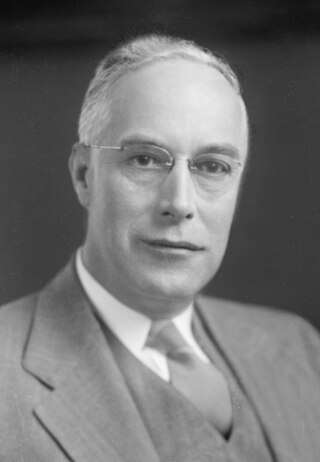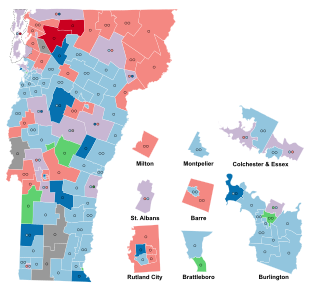Biography
Shepard was born on September 12, 1960, in Windsor, Vermont, and grew up in the neighboring town of Hartland. After graduating from Hartford High School in 1978, he went on to earn a journeyman electrician license (1982), a Bachelor of Science in electrical engineering, University of Florida (1986), and a Master of Engineering in electrical engineering from Rensselaer Polytechnic Institute (1994).
Shepard and his wife Rebecca lived in Bennington, Vermont, from 1994, until they moved to Virginia in 2011, and have four sons.
He is the owner and operator of an industrial control and test systems engineering business, which he founded in 1993.

Vermont has been represented in the United States House of Representatives by a single at-large congressional district since the 1930 census, when the state lost its second seat, obsoleting its 1st and 2nd congressional districts. There were once six districts in Vermont, all of which were eliminated after various censuses.

Winston Lewis Prouty was an American politician. A member of the Republican Party, he served as a United States Senator from Vermont from 1959 until his death. He was previously a member of the United States House of Representatives, serving Vermont's At-large congressional district, from 1951 to 1959.

The 2006 United States Senate election in Vermont was held November 7, 2006. Incumbent independent Senator Jim Jeffords decided to retire rather than seek reelection to a fourth term, and Bernie Sanders was elected to succeed him.

William Henry Wills was an American politician from the U.S. state of Vermont. He was the 61st lieutenant governor of Vermont from 1937 to 1941 and the 65th governor of Vermont from 1941 to 1945. In 1944, Wills was a delegate to the Republican National Convention.

Lee Earl Emerson was an American politician who served in both the Vermont House of Representatives and the Vermont Senate. A member of the Republican Party, he was the 63rd Lieutenant Governor of Vermont and the 69th governor of Vermont. When he was first elected in the 1950 Vermont gubernatorial election, he received over 70% of the vote, a feat not equaled until 1992 and not until 2022 by a Republican. Despite his success in 1950, he lost the Republican primary for U.S. Senate in Vermont in 1958 to Congressman Winston L. Prouty. He also lost the 1960 primary for Vermont's seat in the U.S. House of Representatives to incumbent Governor Robert T. Stafford.

Peter Francis Welch is an American lawyer and politician serving since 2023 as the junior United States senator from Vermont. A member of the Democratic Party, he was the U.S. representative for Vermont's at-large congressional district from 2007 to 2023. He has been a major figure in Vermont politics for over four decades and is only the second Democrat to be elected a senator from the state.

Martha T. Rainville is a retired U.S. Air Force officer who attained the rank of major general. She was the first woman in U.S. history to become a state adjutant general when she served in that post with the Vermont National Guard.

The 2006 United States House of Representatives election in Vermont was held on November 7, 2006, for representation of Vermont's at-large congressional district in the United States House of Representatives from January 3, 2007, to January 3, 2009.

Elections in Vermont are authorized under Chapter II of the Vermont State Constitution, articles 43–49, which establishes elections for the state level officers, cabinet, and legislature. Articles 50–53 establish the election of county-level officers.
Loren R. Pierce was a Vermont attorney and politician who had a long career in the Vermont General Assembly. In addition to serving multiple terms in the Vermont House of Representatives and Vermont Senate, Pierce served one term as Speaker of the House.
Oscar Leslie Shepard was a politician and lawyer in Hardwick, Vermont, who served as Speaker of the Vermont House of Representatives.
Stephen W. Webster is an American attorney, politician and woodland manager from Vermont. He served as President of the Vermont State Senate from 1995 to 1997.

The 1988 United States House of Representatives election in Vermont was held on November 8, 1988. Republican nominee Peter Plympton Smith defeated Independent candidate Bernie Sanders and Democratic nominee Paul N. Poirier.

The 2022 United States Senate election in Vermont was held on November 8, 2022, to elect a member of the United States Senate to represent the state of Vermont. It was held concurrently with U.S. Senate elections in other states, along with elections to the United States House of Representatives and various state and local elections across the country. The incumbent senator, Democrat Patrick Leahy, announced on November 15, 2021, that he would not seek re-election to a ninth term, leaving the seat open for the first time since 1974, when Leahy was first elected.

The 2018 Vermont Senate election took place as part of the biennial United States elections. Vermont voters elected State Senators in all 30 seats. State senators serve two-year terms in the Vermont Senate. A primary election on August 14, 2018, determined which candidates appeared on the November 6 general election ballot.

The 2018 Vermont House of Representatives elections took place as part of the biennial United States elections. Vermont voters elected state representatives in all 150 seats. State representatives serve two-year terms in the Vermont House of Representatives. A primary election on August 14, 2018, determined which candidates appeared on the November 6 general election ballot.

The 2022 United States House of Representatives election in Vermont was held on November 8, 2022, to elect the U.S. representative from Vermont's at-large congressional district. The election coincided with other elections to the House of Representatives, elections to the U.S. Senate, as well as various other state and local elections.

The 2016 Vermont Senate election took place as part of the biennial United States elections. Vermont voters elected State Senators in all 30 seats. State senators serve two-year terms in the Vermont Senate. The election coincided with elections for other offices including the Presidency, U.S. Senate, U.S. House, Governor, and State House. A primary election held on August 9, 2016 determined which candidates appeared on the November 6 general election ballot.

The 2022 Vermont House of Representatives election took place on November 8, 2022, as part of the biennial United States elections. The election coincided with elections for other offices including the U.S. Senate, U.S. House, Governor, and State Senate. Vermont voters elected all 150 state representatives from 109 districts, with each district electing between one and two representatives. State representatives served two-year terms. A primary election was held on August 9, 2022, and it determined which candidates appear on the November 8 general election ballot. All the members elected would serve in the Vermont General Assembly. This election was the first to use new districts adopted by the Vermont General Assembly to allocate for population changes across the state after the 2020 census.

The 2024 Vermont Senate election took place on November 5, 2024, as part of the biennial United States elections. The election coincided with elections for other offices including the U.S. Senate, U.S. House, Governor, and State House. State senators serve two-year terms in the Vermont Senate. Primary elections were held on August 13, 2024.
















